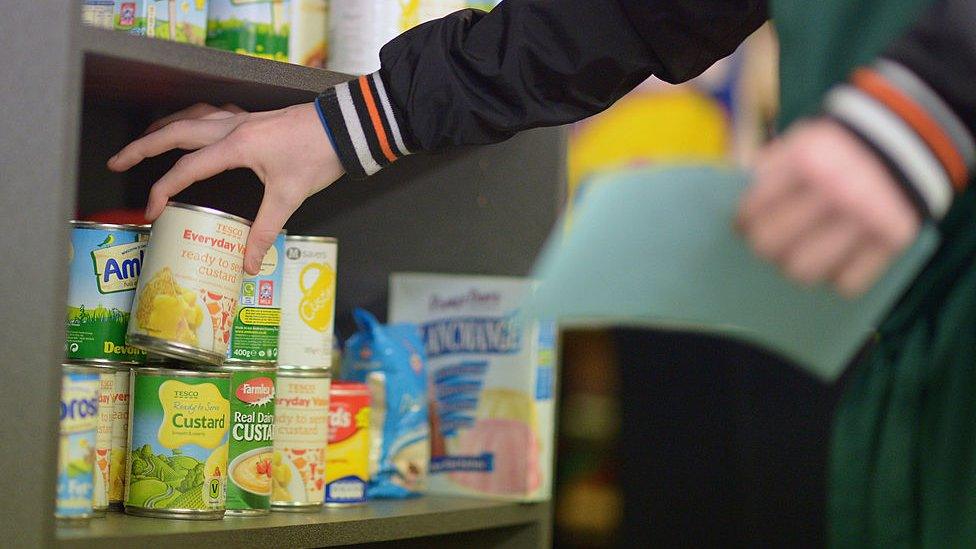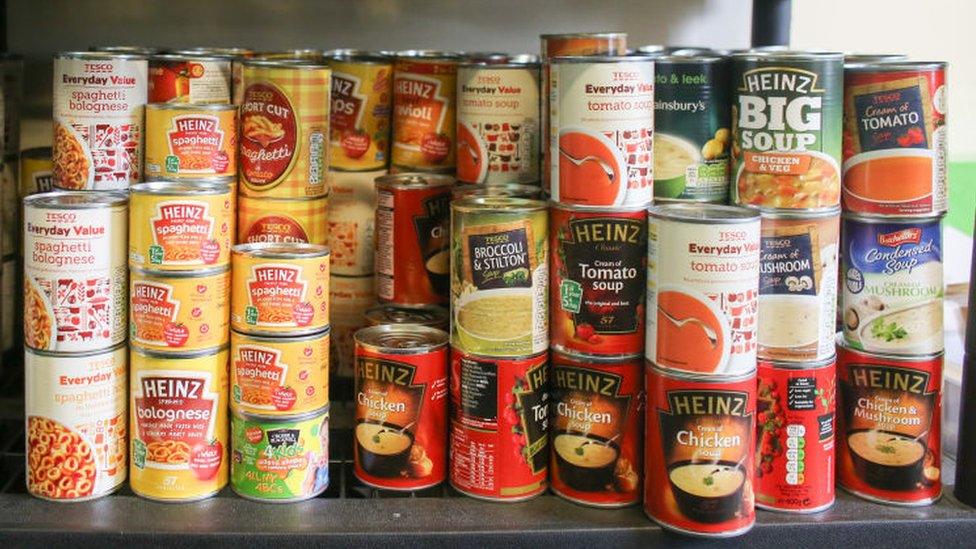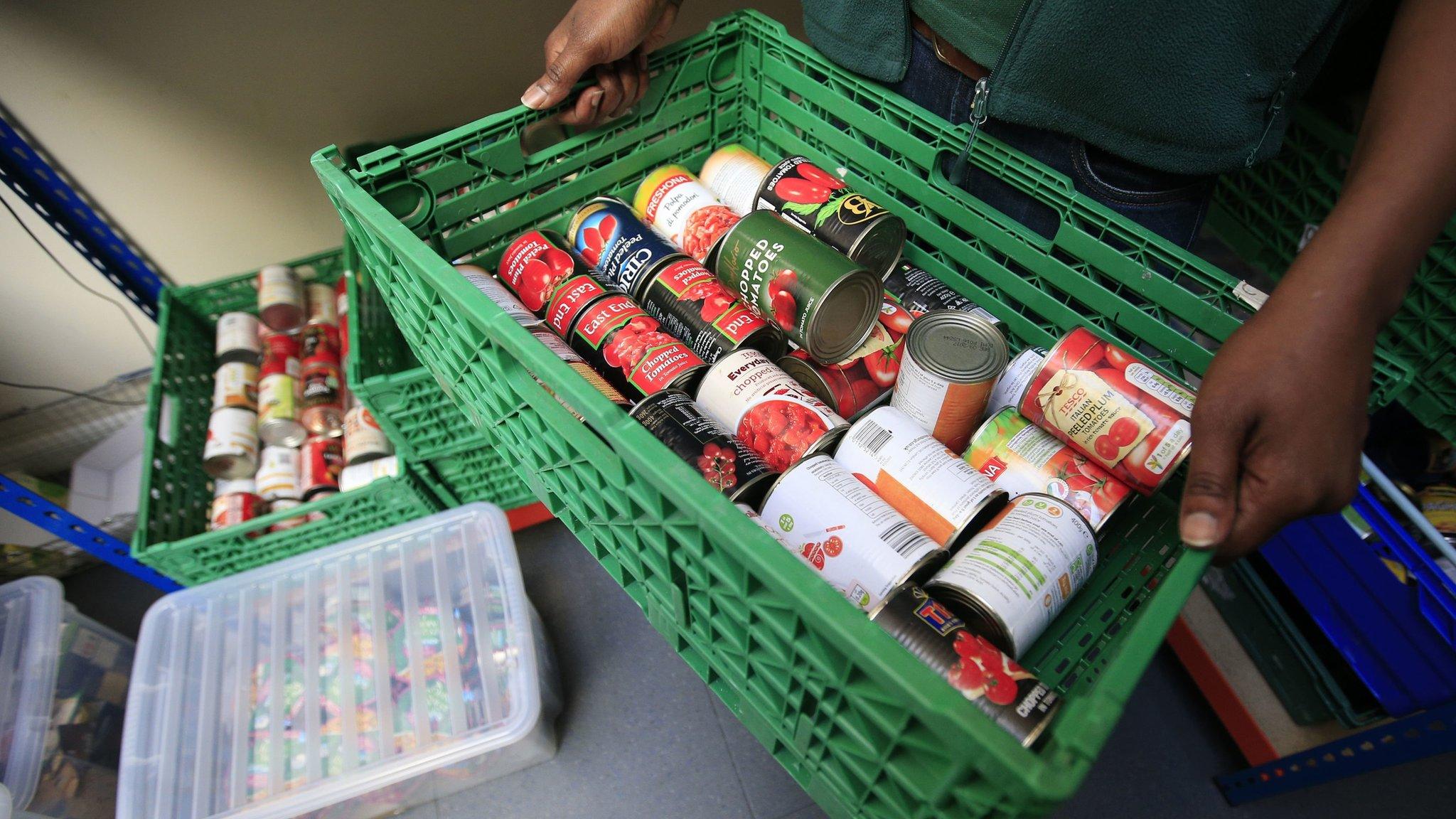Food banks: What are they and who are they for?
- Published

More schools in England are setting up food banks to help feed pupils and their families, according to to a study of school governors.
The National Governance Association's annual survey found that 8% of governors were in schools which offered a food bank service - up from 7% last year.
According to the study, food banks are most common in schools in the north-east of England, where 13% of governors were in schools offering one.
They are also provided more commonly in nursery and primary schools than in secondary schools.
It is a shameful situation in a country which is among the wealthiest in the world.
In July this year, new figures revealed a big increase (19%) in the number of people getting help from food banks.
They also showed that more than one in three of all emergency food parcels distributed throughout the year across the UK by food bank charity Trussell Trust go to children.
This can become more of an issue during the school holidays when some families struggle to afford food when children are not getting free meals in school. Ahead of the summer holidays this year, the charity said it expected to have its busiest summer ever.

What are food banks?
Food banks are a bit like supermarkets, but everything is free. They are for people who struggle to afford to buy enough food to eat.
The products available in food banks consist of basic items that people need to live, most of which are given to the charities by members of the public.
It's not just food available, though. Other essential items like loo paper and soap are also available.
Organisers will ask for the items they need to be donated - for example, they will say if a particular bank is short on tinned food or shower gel.
Cereal
Biscuits
Tinned goods like beans or soup
Lentils or dried pulses
Nappies or baby wipes
Rice or pasta
Toothbrushes and tooth paste
Washing up liquid, detergent
Deodorant
If you are thinking of donating, check with your local food bank first to see what they need.
- Published26 November 2018

- Published27 June 2019

